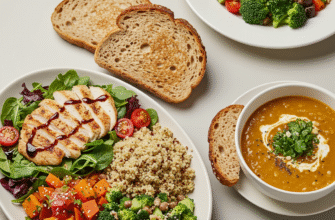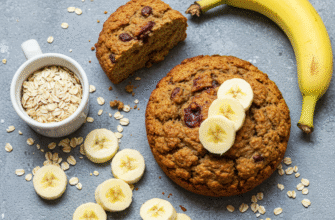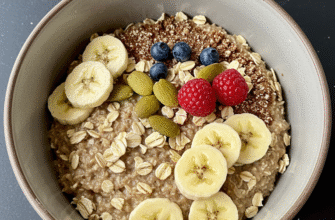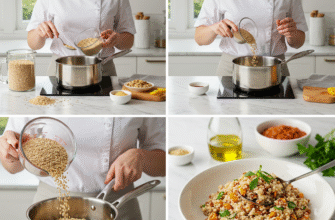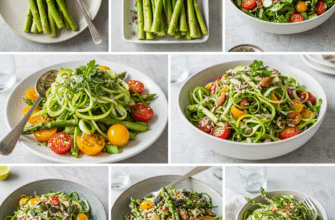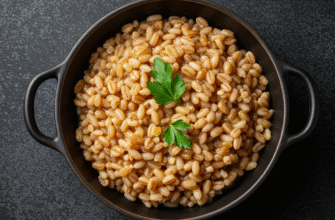We often think about diet in terms of weight management or heart health, but have you ever considered what you eat impacts your vision? It’s true! Just like the rest of your body, your eyes rely on a steady supply of specific nutrients to function optimally day in and day out. Fueling your body with wholesome foods isn’t just good for your waistline; it’s a fundamental way to support the intricate workings of your eyes and maintain visual comfort.
Think of it less like a magic bullet cure and more like providing the right building blocks and maintenance crew for a complex piece of biological machinery. Consistent good nutrition contributes to the overall health of the tissues and fluids within the eye, potentially helping them function better for longer. It’s about playing the long game for sustained wellness, and your eyes are definitely part of that equation.
Nutrients That Your Eyes Appreciate
Certain vitamins, minerals, and other compounds play particularly noteworthy roles in supporting eye structures and functions. Getting a good mix of these through your diet is a smart strategy for overall well-being, which naturally benefits your eyes.
Vitamin A and Beta-Carotene
This is probably the most famous eye vitamin. Vitamin A is crucial for good vision, particularly in low light conditions. It’s a key component of rhodopsin, a protein in your eyes that allows you to see in dim environments. Beta-carotene is a precursor to Vitamin A, meaning your body can convert it into the vitamin as needed. It’s also a potent antioxidant.
Where to find them:
- Orange-coloured fruits and vegetables: Carrots (of course!), sweet potatoes, pumpkins, butternut squash, cantaloupe, mangoes, apricots.
- Dark leafy greens: Spinach, kale, collard greens.
- Other sources: Egg yolks, liver (consume in moderation due to high Vitamin A concentration).
Vitamin C: The Protector
A powerful antioxidant, Vitamin C helps protect the body’s cells – including those in your eyes – from damage caused by free radicals. Free radicals are unstable molecules that can contribute to cellular aging and various health issues. Vitamin C also plays a role in the health of blood vessels, including the tiny capillaries in the retina.
Where to find it:
- Citrus fruits: Oranges, grapefruits, lemons, limes.
- Berries: Strawberries, blueberries, raspberries, blackberries.
- Other fruits: Kiwi, pineapple, papaya, cantaloupe.
- Vegetables: Bell peppers (especially red and yellow), broccoli, Brussels sprouts, tomatoes, leafy greens.
Vitamin E: Another Antioxidant Ally
Working alongside Vitamin C, Vitamin E is another fat-soluble antioxidant that helps protect cell membranes from oxidative stress. Think of antioxidants like a cellular defense team, neutralizing harmful molecules before they can cause damage. Healthy cell membranes are vital for all parts of the eye.
Where to find it:
- Nuts and seeds: Almonds, sunflower seeds, hazelnuts, peanuts (and their butters).
- Vegetable oils: Sunflower oil, safflower oil, wheat germ oil.
- Green leafy vegetables: Spinach, broccoli.
- Fortified cereals (check labels).
Lutein and Zeaxanthin: The Macular Pigments
These two carotenoids are concentrated in the macula, the central part of the retina responsible for sharp, detailed vision. They act like internal sunglasses, filtering harmful high-energy blue wavelengths of light and protecting the delicate tissues of the macula. They are also potent antioxidants.
Where to find them:
- Leafy green vegetables: Kale, spinach, collard greens, Swiss chard, romaine lettuce, turnip greens.
- Other vegetables: Broccoli, peas, corn, Brussels sprouts, green beans.
- Egg yolks (the yolk’s fat helps with absorption).
- Orange/yellow fruits: Oranges, tangerines, papayas.
Zinc: The Helper Mineral
Zinc is an essential mineral that plays a vital role in bringing Vitamin A from the liver to the retina to produce melanin, a protective pigment in the eyes. It’s involved in numerous enzymatic processes crucial for cellular function throughout the body, including the eyes.
Where to find it:
- Meat and poultry: Beef, pork, chicken, turkey (especially dark meat).
- Shellfish: Oysters (very high source), crab, lobster.
- Legumes: Chickpeas, lentils, beans.
- Nuts and seeds: Pumpkin seeds, cashews, almonds.
- Dairy products: Milk, yogurt, cheese.
- Whole grains.
Omega-3 Fatty Acids: Essential Fats
Specifically EPA and DHA, these essential fatty acids are important components of cell membranes, particularly in the retina. They have anti-inflammatory properties which contribute to overall health. They may also play a role in maintaining comfortable tear film function, which is important for preventing dryness.
Where to find them:
- Fatty fish: Salmon, mackerel, herring, sardines, tuna, trout. Aim for at least two servings per week.
- Plant-based sources (contain ALA, which the body converts less efficiently to EPA/DHA): Flaxseeds (ground), chia seeds, walnuts, hemp seeds, soybeans (edamame).
- Fortified foods: Some eggs, yogurts, and milks are fortified with Omega-3s.
Focusing on a colourful plate is a simple way to ensure you’re getting a variety of beneficial nutrients. Different colours in fruits and vegetables often signify different vitamins, minerals, and antioxidants. Aim for a rainbow throughout your week to cover your nutritional bases naturally!
Beyond Specific Nutrients: The Bigger Picture
While knowing about specific vitamins and minerals is helpful, obsessing over individual nutrients isn’t the most effective strategy. The synergy of compounds found in whole foods often provides benefits beyond the sum of its parts. A generally healthy, balanced diet is the cornerstone of supporting your eye health through nutrition.
Hydration Matters
Don’t forget water! Proper hydration is essential for overall bodily function, and that includes your eyes. Adequate water intake helps maintain the fluid balance within the eye and contributes to the production of tears, which are crucial for lubrication, cleansing, and providing a smooth optical surface. Dehydration can sometimes contribute to feelings of dry, gritty eyes.
The Power of a Balanced Diet
Instead of zeroing in on just ‘eye foods’, focus on a diet pattern rich in:
- Fruits and Vegetables: Aim for variety and colour. Fill half your plate with these nutritional powerhouses at most meals.
- Whole Grains: Choose brown rice, quinoa, oats, whole wheat bread, and pasta over refined grains. They provide sustained energy and fibre.
- Lean Proteins: Include fish, poultry, beans, lentils, nuts, seeds, and eggs.
- Healthy Fats: Opt for unsaturated fats found in avocados, nuts, seeds, and olive oil, along with the Omega-3s mentioned earlier.
Moderation is Key
A healthy diet also involves limiting foods that don’t offer much nutritional benefit or could potentially detract from overall health when consumed in excess. This includes:
- Highly Processed Foods: Often high in unhealthy fats, sodium, and sugar, while low in essential nutrients and fibre.
- Sugary Drinks and Snacks: Can contribute to unstable blood sugar levels and offer little nutritional value.
- Excessive Saturated and Trans Fats: Found in fried foods, fatty meats, and many commercially baked goods.
Maintaining stable blood sugar levels through a balanced diet is also important, as fluctuations can impact overall vascular health, which indirectly affects the tiny blood vessels supplying the eyes.
Making Eye-Healthy Eating Easy
Incorporating these foods doesn’t need to be complicated. Small, consistent changes can make a big difference over time.
Simple Swaps and Additions:
- Add spinach or kale to your morning smoothie or scrambled eggs.
- Snack on a handful of almonds or walnuts instead of chips.
- Include a colourful salad with mixed greens, bell peppers, and chickpeas with your lunch or dinner.
- Swap white rice for brown rice or quinoa.
- Choose whole fruit instead of fruit juice for more fibre.
- Grill or bake fish instead of frying it.
- Top your yogurt or oatmeal with berries and chia seeds or flaxseeds.
- Keep hard-boiled eggs on hand for a quick, protein-rich snack containing lutein and zeaxanthin.
Plan Ahead
Meal planning and prepping some ingredients ahead of time (like washing and chopping vegetables) can make healthy eating much more achievable during busy weeks. Stock your pantry and fridge with nutrient-dense staples so you always have good options available.
While a healthy diet significantly contributes to overall wellness, including eye health, it’s not a substitute for regular eye examinations. Nutritional strategies support general function, but professional eye care is essential for detecting and managing specific eye conditions. Always consult with an eye care professional for any vision concerns.
Eating for Happy Eyes
Nourishing your body with a diverse range of whole foods provides the essential vitamins, minerals, antioxidants, and healthy fats that support countless bodily processes, including those that keep your eyes functioning well. It’s about creating a foundation of health that allows all parts of your body, eyes included, to perform at their best. By making conscious choices to include colourful fruits, leafy greens, healthy fats, and lean proteins in your daily meals, you’re investing in your overall well-being, and your eyes will thank you for it. Remember, a healthy lifestyle, encompassing both diet and regular check-ups, is the best approach for long-term wellness.


